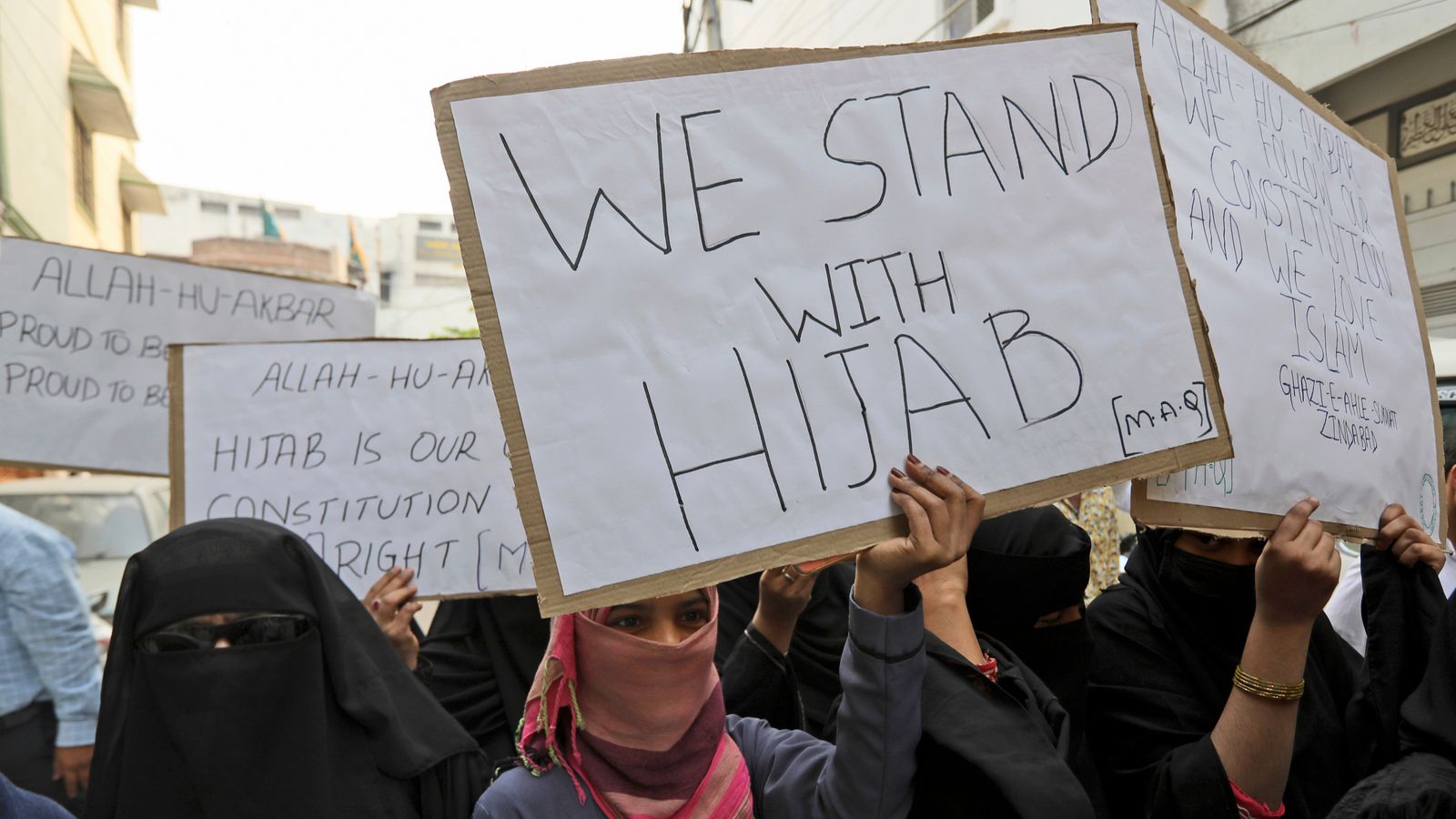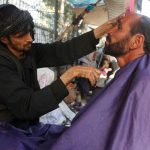Schools in southern India that were closed following protests over female students not being allowed to wear hijabs or burkas have reopened a week later.
The issue was widely seen by India‘s Muslim minority as a bid to sideline the community in the Hindu-dominated nation.
Police stood guard as students in pink uniform, with about a dozen wearing hijabs, entered the government girl’s school in Karnataka state’s district of Udupi where the issue first flared up.
Authorities have banned gatherings of more than five people within 200m (650ft) of educational institutions in the area.
Primary to high school classes have restarted, but some higher grades and colleges remain shut.
Court order bans religious clothing
A state court, which set a hearing for the matter on Monday, told students not to wear any religious clothing – ranging from saffron shawls to scarves or hijabs – in class until further notice.
India: Malala Yousafzai tells Indian leaders to step in as schools in Karnataka close after violent protests over hijab ban
Lata Mangeshkar: Bollywood actors, cricketers and politicians pay tribute to ‘Queen of Melody’
Lata Mangeshkar: The legendary Indian singer known as the ‘Nightingale’ and voice of Bollywood dies aged 92
“Whether wearing of hijab in the classroom is a part of essential religious practice of Islam in the light of constitutional guarantees needs a deeper examination,” the court said in its interim order last week.
Protests broke out last week after some students were refused entry after they fell afoul of a 5 February order by Narendra Modi’s ruling party.
The Bharatiya Janata Party (BJP) derives its support from the majority Hindu community, which forms about 80% of India’s roughly 1.4 billion population.
Meanwhile, Muslim people account for around 13%.
Ayesha Imthiaz, a student in Udupi, said it was humiliating to be asked to take off the hijab before class.
She felt her “religion had been questioned and insulted by a place which I had considered as a temple of education”.
Support from Pakistan
Hindu students mounted counter-protests, flocking to schools in support of the ban.
In one incident in a video widely shared online, a lone Muslim student wearing the hijab was surrounded by teenage boys shouting religious slogans as she tried to enter her school in Karnataka.
The order also sparked outrage in the neighbouring Muslim-majority country of Pakistan, where women rallied in support of the girls.
Last week, about a hundred took to the streets in the southern port city of Karachi, organised by Pakistani Islamist political party, the Jamaat-e-Islami.
In the eastern city of Lahore, dozens of women torched an effigy of Indian Prime Minister Narendra Modi and demanded the lifting of the ban.
“Depriving Muslim girls of an education is a grave violation of fundamental human rights,” Pakistan’s foreign minister, Shah Mahmood Qureshi, tweeted last week, calling the situation “absolutely oppressive”.
Malala Yousafzai speaks in support of girls
Nobel Peace Laureate and Pakistani activist Malala Yousafzai, who survived being shot in the head by the Taliban in 2012, spoke out in support of the girls.
“College is forcing us to choose between studies and the hijab”.
Refusing to let girls go to school in their hijabs is horrifying. Objectification of women persists — for wearing less or more. Indian leaders must stop the marginalisation of Muslim women. https://t.co/UGfuLWAR8I
“Refusing to let girls go to school in their hijabs is horrifying,” she said.
“Objectification of women persists – for wearing less or more. Indian leaders must stop the marginalisation of Muslim women.”






















